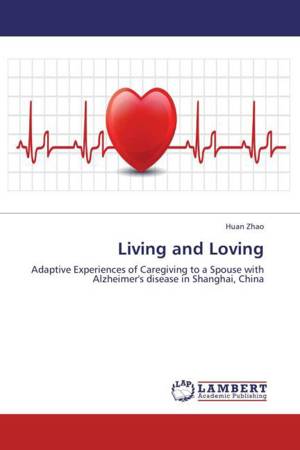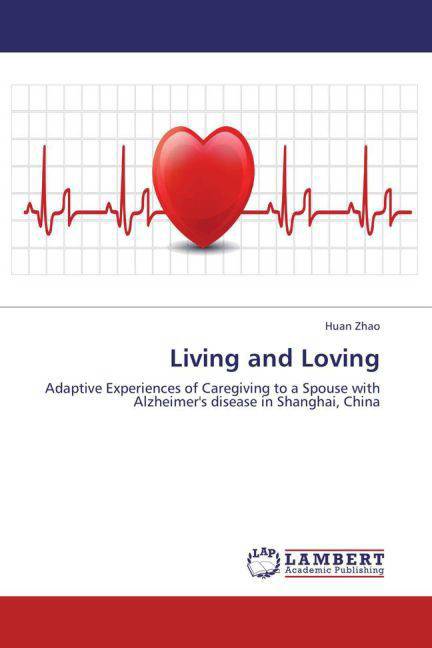
- Afhalen na 1 uur in een winkel met voorraad
- Gratis thuislevering in België vanaf € 30
- Ruim aanbod met 7 miljoen producten
- Afhalen na 1 uur in een winkel met voorraad
- Gratis thuislevering in België vanaf € 30
- Ruim aanbod met 7 miljoen producten
Zoeken
Living and Loving
Adaptive Experiences of Caregiving to a Spouse with Alzheimer's disease in Shanghai, China
Huan Zhao
Paperback | Engels
€ 106,45
+ 212 punten
Omschrijving
This qualitative study is an attempt to explore the adaptive experiences of elderly Chinese caregivers who have to take care of their spousal partners who are suffering from Alzheimer s disease (AD). As the illness is known to be chronic and degenerative in nature, caregivers are thus faced with many stressful situations and adjustments are necessary. In fact, participants of the study often utilized more than one strategy in adjusting to their situations. The six aspects of adjustments are thus put together in this study as an integrated model of life adaptation and survival tactics adopted by elderly Chinese AD spousal caregivers. Also, whether these caregivers are successful in adapting depends on their abilities to accept changes in themselves and their environment, and achieve a compromise between the two. Based on the findings, a culturally sensitive perspective is thus put forward to enhance the understanding of studied phenomenon within the contemporary Chinese context. Recommendations are also made regarding the needed policy changes and the revisions of social work practices in support of the elderly suffering from AD and their caregiving spouses.
Specificaties
Betrokkenen
- Auteur(s):
- Uitgeverij:
Inhoud
- Aantal bladzijden:
- 384
- Taal:
- Engels
Eigenschappen
- Productcode (EAN):
- 9783659331374
- Verschijningsdatum:
- 30/01/2013
- Uitvoering:
- Paperback
- Afmetingen:
- 150 mm x 220 mm
- Gewicht:
- 525 g

Alleen bij Standaard Boekhandel
+ 212 punten op je klantenkaart van Standaard Boekhandel
Beoordelingen
We publiceren alleen reviews die voldoen aan de voorwaarden voor reviews. Bekijk onze voorwaarden voor reviews.







